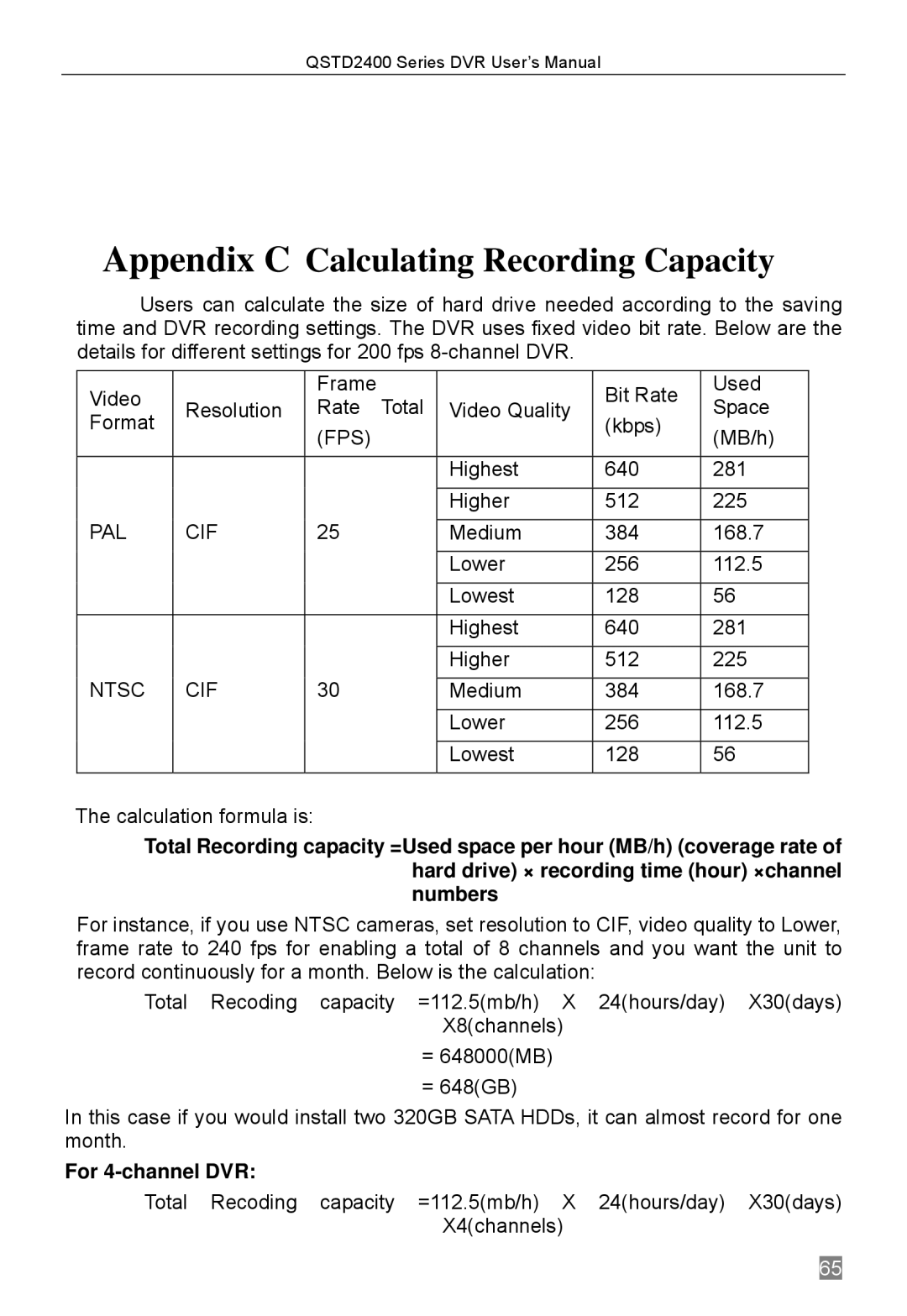QSTD2400 Series DVR User’s Manual
Appendix C Calculating Recording Capacity
Users can calculate the size of hard drive needed according to the saving time and DVR recording settings. The DVR uses fixed video bit rate. Below are the details for different settings for 200 fps
Video |
| Frame |
| Bit Rate | Used | |
Resolution | Rate Total | Video Quality | Space | |||
Format | (kbps) | |||||
| (FPS) |
| (MB/h) | |||
|
|
|
| |||
|
|
|
|
|
| |
|
|
| Highest | 640 | 281 | |
|
|
|
|
|
| |
|
|
| Higher | 512 | 225 | |
PAL | CIF | 25 |
|
|
| |
Medium | 384 | 168.7 | ||||
|
|
| Lower | 256 | 112.5 | |
|
|
|
|
|
| |
|
|
| Lowest | 128 | 56 | |
|
|
|
|
|
| |
|
|
| Highest | 640 | 281 | |
|
|
|
|
|
| |
|
|
| Higher | 512 | 225 | |
NTSC | CIF | 30 |
|
|
| |
Medium | 384 | 168.7 | ||||
|
|
|
|
|
| |
|
|
| Lower | 256 | 112.5 | |
|
|
|
|
|
| |
|
|
| Lowest | 128 | 56 | |
|
|
|
|
|
|
The calculation formula is:
Total Recording capacity =Used space per hour (MB/h) (coverage rate of hard drive) × recording time (hour) ×channel numbers
For instance, if you use NTSC cameras, set resolution to CIF, video quality to Lower, frame rate to 240 fps for enabling a total of 8 channels and you want the unit to record continuously for a month. Below is the calculation:
Total Recoding capacity =112.5(mb/h) X 24(hours/day) X30(days) X8(channels)
=648000(MB)
=648(GB)
In this case if you would install two 320GB SATA HDDs, it can almost record for one month.
For 4-channel DVR:
Total Recoding capacity =112.5(mb/h) X 24(hours/day) X30(days) X4(channels)
65
